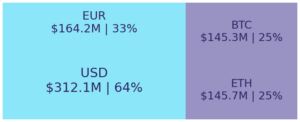While today’s world is becoming increasingly cashless, it is hard to imagine living without a bank account. Banking is considered a safe and stable way to manage its finances. Alternative financial services are interpreted as exploitative and risky. As policymakers continue to emphasize the role of financial institutions in the poverty reduction, it is important to ask why people are shunning banks in favor of riskier, less convenient alternatives. One problem is that the banking system was not designed for low- and middle-class households. Charges are levied to combat overdraft fees, debit card fees, ATM withdrawal fees, transfer fees and other charges. These fees, which occur in every corner of the banking system, are a significant burden and barrier to entry for low- and middle-income people. To make matters worse, these fees are hard to avoid.

혁신과 금융 포용
금융 서비스 산업은 신용카드부터 인터넷 뱅킹까지 풍부한 혁신의 역사를 갖고 있지만, 핀테크는 종종 새로운 스타트업과 연관되어 있습니다. 새로운 고객 요구에 적응하지 못하는 전통적인 금융 회사의 일반적인 분노는 부분적으로 핀테크 산업의 출현을 촉진했습니다.
핀테크 혁신은 더 나은 고객 서비스, 브랜딩 및 가격 책정을 통해 은행 서비스를 분리하고 소매 고객을 위한 프런트 엔드를 개선하는 데 중점을 둡니다.
혁신은 금융 서비스의 고객 중심 측면을 향상시키는 서비스를 전문으로 하는 프런트엔드에 의해 주도됩니다.. Fintech startups provide a concept of “unbundling” banks that offer only one type of product or service and focus on doing just that. Organisations such as the World Bank, the G20 and the European Bank for Reconstruction and Development are taking a broad range of initiatives to enable people to make a more effective use of financial services. At the same time, payment and telecommunications companies such as Visa, Mastercard and Vodafone are bringing new financial services and opportunities to developing countries.

전통적인 은행 접근에 대한 장벽을 극복하고 금융 포용의 격차를 해소합니다.
오늘날 금융 포용에 대한 노골적이고 가장 적게 논의되는 통찰력 중 하나는 은행이나 유사한 서비스에 접근할 수 없는 사람들의 수입니다. 핀테크의 발전은 소외된 지역사회가 은행에 쉽게 접근하는 데 도움이 될 수 있습니다. 디지털 결제 시스템 및 소액 금융과 같은 핀테크 트렌드는 기존 은행 접근에 대한 장벽을 극복하고 금융 포용의 격차를 줄이는 데 도움이 될 수 있습니다. 결과적으로 신용 이체, 저축 계좌 및 모바일 결제 서비스에 대한 쉽고 안전한 액세스를 제공함으로써 수천 명의 사람들이 은행 시스템에 참여할 수 있게 되었습니다. 기본 은행 계좌는 더 큰 포용성을 향한 첫 번째 단계이며 사업 시작 및 성장, 교육 및 건강에 대한 투자, 위험 관리를 위한 신용 및 보험과 같은 기타 금융 서비스에 대한 관문 역할을 할 수 있습니다.
전 세계 사람들을 위해 은행 계좌를 개설하는 것은 전환의 의식이지만, 세계 인구의 상당 부분은 여전히 은행 계좌가 없으며 재정적 필요의 상당 부분을 은행을 사용하지 않습니다. 은행 계좌가 없거나 자금이 부족한 사람들은 돈 필요를 충족하기 위해 수표 및 현금 지급기, 급여 담보 대출 및 우편환과 같은 대체 금융 서비스를 이용하는 경향이 있습니다. 대체 금융 서비스는 기존 은행과 유사한 서비스를 제공하는 경향이 있지만 가격은 더 높습니다. 은행 계좌가 없는 고객에게 계좌에 더욱 편리하게 액세스할 수 있는 등의 혜택을 제공할 수 있지만 은행이 제공하는 유사 계좌보다 가격이 더 비싼 경우가 많습니다.
자금이 부족한 사람들은 은행을 포함한 전통적인 금융 서비스를 최대한 활용하지 못합니다. 한편, 전통적인 금융서비스를 이용하지 않거나 접근할 수 없는 성인을 말합니다. 이러한 사람들은 이러한 서비스를 충분히 활용하지 못하고, 은행도 아닌 경우가 많으며 급여 담보 대출, 수표 현금 서비스, 선불 직불 카드 등과 같은 대안에 의존합니다. 2017년 FDIC 조사에 따르면, 미국 가구 중 52%가 은행 계좌에 계좌를 운영할 자금이 충분하지 않다고 말했습니다. 전 세계 20억 명의 성인이 은행 계좌에 접근할 수 없지만 그 중 3분의 2는 휴대폰을 소유하고 있습니다. A third of adult (1.7 billion people) are without a bank account and more than half of people without a bank account – including women, people in poor households and rural areas – are unemployed.
The Federal Reserve recently found that half of US adults are unable to cover $400 in emergency spending without borrowing – a alarming statistic and speaks to the economic uncertainty that is an everyday reality for many. These regional imbalances can be attributed to the greater need for basic financial services in the underdeveloped world.
신용 이체, 저축 계좌 및 모바일 결제 서비스에 대한 쉽고 안전한 액세스를 제공하면 많은 저개발국에서 큰 변화를 가져올 수 있습니다.. 금융 기관이 발달한 국가에서는 은행 계좌를 개설하는 데 공식 신분증, 최소 예치금, 인터넷 및 현지 은행 지점 이용 등의 장애물이 포함됩니다.
In the United States, for example, there are 14 million people who have no bank account and 50 million who are underfunded. In some cases, people leave behind few data crumbs that can give clues as to who they are, why they are “bankrupt” or “undervalued,” or have no credit history. In other cases, consumers leave a trail, but this trail is not accessible to the companies and agencies that need it to verify the creditworthiness of a credit card, mobile phone plan, or home.
사회적 문제 해결
사회 변화에 전념하는 핀테크 기업은 사용자에게 탁월한 고객 서비스를 제공할 뿐만 아니라 전 세계 수천 명의 삶을 개선할 수 있는 방법도 모색하고 있습니다. 핀테크 산업은 소비자 금융 건전성을 개선하고 민주화하는 것을 주요 목표로 삼았지만, 이를 달성하려면 고객과 고객이 돈을 지출하는 방법에 대해 더 많이 알아야 합니다. 그렇지 않으면 금융 서비스 회사에 대한 지식에 큰 격차가 있고 그 격차는 고객이 하나 이상의 소수자 또는 서비스 소외 계층에 속할 때만 확대됩니다.
금융 포용을 성공적으로 달성하기 위해서는 국가가 금융, 금융 역량, 혁신적인 제품 제공 메커니즘에 대한 책임 있는 접근을 촉진하는 광범위한 정책의 프레임워크를 만들기 위해 관련 공공 및 민간 행위자 간의 강력한 정치적 참여와 조정을 보여주는 것이 필수적입니다. 그리고 정책 결정에 영향을 미칠 수 있는 고품질 데이터.
더 읽어보기


